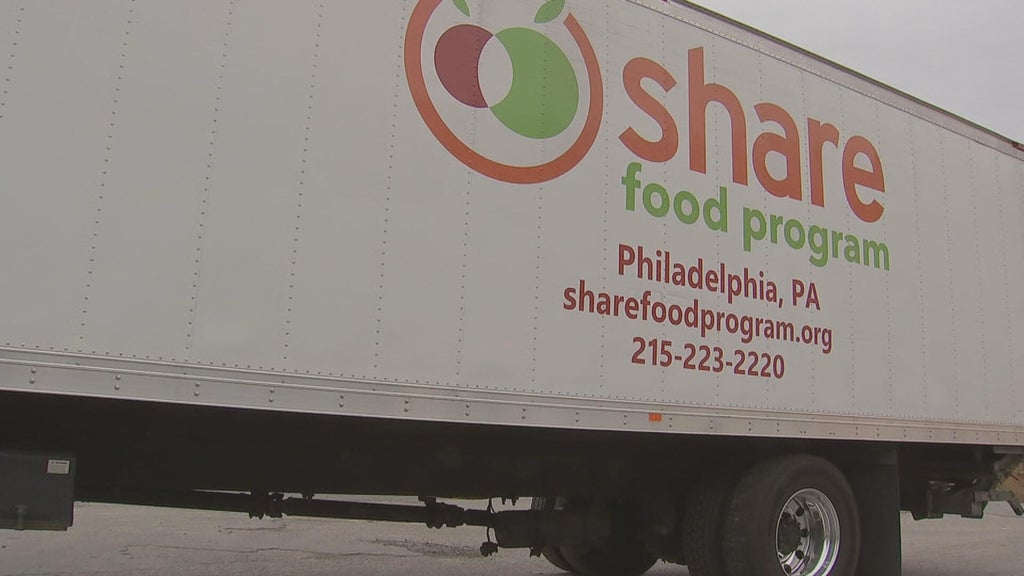Food Banks in Philadelphia Brace for Surge as SNAP Payments Pause

The Growing Crisis of Food Insecurity in Philadelphia
In the United States, about one in eight people receives federal food aid, but in Philadelphia, that number is significantly higher—nearly one in three. This alarming statistic highlights the deep-rooted challenges many families face when it comes to accessing basic necessities like food. Now, with the government shutdown affecting federal programs, officials warn that these crucial benefits will be suspended starting November 1. This development has raised serious concerns about how families and food banks across the region will manage in the coming months.
A Family's Struggle Amidst Financial Hardship
Jasmine Clowden, a single mother of five, is just one of many who are feeling the strain. She was seen pushing her 2-month-old daughter in a stroller while holding her 3-year-old son’s hand as they walked through a park in University City. Despite the smiles and laughter, Clowden admits that this has been one of the most difficult times in her life. She is currently staying in a transitional home while her 17-month-old daughter receives specialized care at the Children's Hospital of Philadelphia (CHOP). Her daughter has a rare genetic mutation that affects her ability to digest food, requiring daily visits to the hospital.
Clowden relies on SNAP benefits, which she has received for the past five years, to support her family. She typically gets around $1,200 a month to buy groceries. However, her recent experience has been anything but stable. Her last deposit was shown on October 7, only to be immediately withdrawn later that day from locations she never visited. This left her with just 25 cents in her account. Now, with the government shutdown expected to halt future payments, she faces an even greater challenge.
The Impact on Local Food Banks
The situation is not unique to Clowden. George Matysik, executive director of the Share Food Program in Philadelphia, says their organization is bracing for the worst. They are already seeing an increase in demand, with more people turning to their services than ever before. “For organizations like us already dealing with an increase in need and less resources than we've had in recent years, it's going to be a greater challenge than anything we've ever dealt with before,” Matysik said. He emphasized the importance of donations, whether in the form of money, food, or time, to keep their operations running.
Matysik recently traveled to Harrisburg to discuss potential solutions with state lawmakers, hoping to find ways to help families like Clowden avoid hunger.
New Jersey Food Banks Prepare for the Worst
Similar concerns are spreading throughout New Jersey. Jake Jones, a father of two, recently filled a shopping cart with groceries at the South Jersey Dream Center in West Deptford. He said his benefits card now shows a zero balance, forcing him to rely on the nonprofit for assistance. “It’s hard right now,” he said. “I got little kids, so this is what the food is for.”
Natalie Fortunato, the executive director of the South Jersey Dream Center, explained that the center provides full grocery carts to those in need. “We don’t hand a box of food to people and a couple bags, they leave with a grocery cart full,” she said. However, with the growing demand, the center is struggling to keep its shelves stocked. “In the last six days we received 160 requests for assistance, that is off the charts,” she added.
At the Food Bank of South Jersey, volunteers are working tirelessly to meet the rising demand. CEO Fred Wasiak noted that 130,000 people in the region rely on SNAP benefits, and if those benefits are paused, families will have no choice but to turn to local pantries. “We are beefing up our inventory to get food to them as quickly as possible,” he said. “It's going to be challenging to figure out how we are going to serve all those that need food.”
A Community Coming Together
Despite the challenges, many individuals and organizations are stepping up to help. Cathedral Kitchen in Camden is also preparing for a surge in demand. Noreen Flewelling, vice president of development, shared that they served 800 meals on Monday, compared to their usual 650 during the last week of the month. “Just how will we handle if we serve 1,000 meals in a day next week, 1,500? We don't know what that number is going to be,” she said.
Many food pantries report serving more people now than at the peak of the pandemic. With the potential suspension of SNAP benefits, the impact could be devastating, especially during the holiday season. As families like Clowden’s continue to face uncertainty, the community remains determined to support those in need.
Post a Comment